Sharing unique experiences
THE PANELISTS
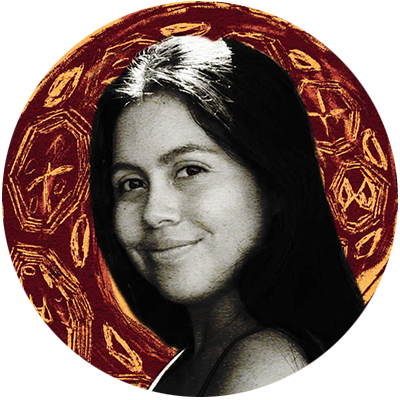
Elizabeth Swanson Andi
Elizabeth Swanson Andi is a member of the Santu Urku Kichwa community on the Napo River in the Ecuadorian Amazon. She is an indigenous artist, environmental scientist, and storyteller inspired by the land and people who shaped her.
In the Kichwa language there are three words that center Elizabeth’s work— “iyarina” meaning to think by looking at the land and remembering what happened there. “llakichina” meaning to feel empathy, sorrow, and love all at once. & finally “kuyana” the act of reciprocity and giving back. When she looks at the land she not only thinks about what happened there during her lifetime but that of her mother’s and grandmother’s. As she remembers she feels great “llaki” leading her to the action of “kuyana.”
Throughout generations much has changed—Her grandparents are kichwa monolingual speakers, when they were young there was an abundance of wildlife, clear streams, and forests. Today her community faces language loss, forest degradation and food and water insecurity. The lives of all those who reside in the Amazon are at risk, and that’s why she is dedicated to protecting her home and amplifying the voices of her people. For the land, for cultural survival, for a future filled with indigenous joy—Allpamanda, kawsaymanda hatarishun. Runa yachay ruku kawsay ñaupakma apashun.
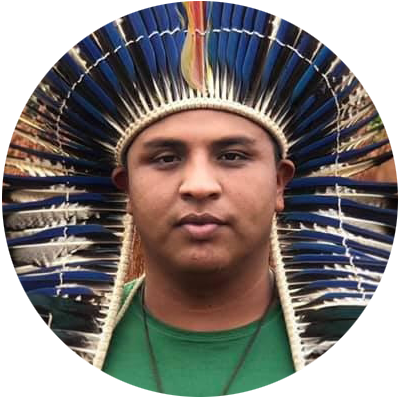
Erisvan Bone Guajajara
Erisvan Bone Guajajara is a youth leader and journalist from the Guajajara people in Maranhão, Brazil. He has been active in the indigenous movement since 2010, within political organizations and as a cultural activist, using communication for the empowerment of indigenous youth. He sees communication as a key tool to multiplying the force of new ideas within the indigenous movement, to combat climate change and to record and denounce, through documentary, short films and photographs, the great exploitation of timber in indigenous territories.
Erisvan founded the network “Mídia India” with two other Guajajara youth, Edvan Guajajara and Flay Guajajara, to give voice to Brazil’s indigenous peoples, and disseminates news of indigenous campaigns from across Brazil via their Facebook page. His aim is to develop a Latin American indigenous communications network where indigenous people can tell their own story. He works at a national level to connect with other indigenous communicators, to show the true reality of their peoples.
He is a communication contributor for Indigenous Youth Network (Rede de Juventude Indígena, REJUIND), Articulation of Indigenous Peoples of Brazil (Articulação dos Povos Indígenas do Brasil, APIB), and Coordinator of Indigenous Organizations of the Brazilian Amazon (Coordenação das Organizações Indígenas da Amazônia Brasileira, Coiab). Along with Tipuici Manoki, a young indigenous woman who also works as a communicator, he brought the LGBTQIA+ issue into the indigenous movement political discussions. Nowadays, he’s a member of the Tobira group, which guides the LGBTQIA+ theme between indigenous peoples. Erisvan was a contributor for the Amazônia Real agency (Maranhão, Brazil) in 2018 and 2019.
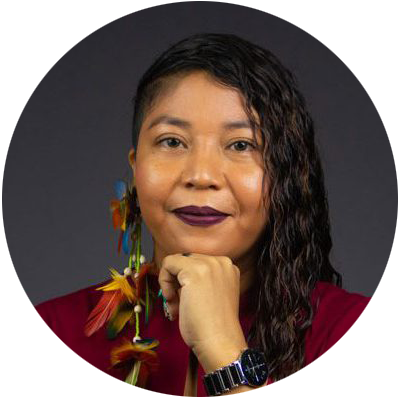
Jupta Lilian Itoewaki
Jupta Lilian Itoewaki is a Wayana activist and politician from Suriname. Since 2018, she has been the founding president of Mulokot, an organization representing the interests of the Wayana people. She had previously worked from 2010 with groups focused on preserving the culture and habitat of indigenous Surinamese.
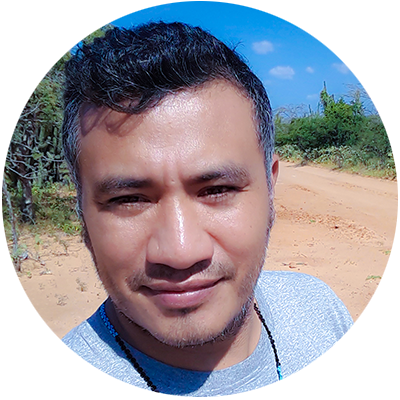
David Hernández Palmar
David Hernández Palmar (Wayuu, IIPUANA Clan, Venezuela), is a filmmaker, independent curator and film programmer with recognized experience in the Latin American region. He is also a photographer, journalist, researcher and producer of several audiovisual works that have portrayed the Wayuu world. He has co-directed films such as: “Owners of The Water”, “Wounmainkat“. With the short film “The Foreign Body“, World Premiere in competition at the Toronto International Film Festival TIFF and Winner of the First Prize at FICMAYAB (13th International Festival of Film and Communication of Indigenous Peoples), he began his career as a Film Producer. He is currently the executive producer of the Ecuadorian feature film “Semillas de Lucha” by Kvrvf Nawel (Mapuche, Argentina), that was premiered at The International Film Festival of Cartagena de Indias–FICCI60, producer of “A son,” a first feature film project in development by Venezuelan filmmaker Héctor Silva Núñez, producer of “The Dusk of the Amazon,” a documentary feature in production by Alvaro Sarmiento and Diego Sarmiento (Quechua, Perú), producer of “Suggunya 1698. The key to Darién,” a documentary feature film project in development by Olowaili Green (Guna Dule, Colombia) and David Sierra, co–director with Marbel Vanegas (Wayuu Jusayu, Colombia), of “Searching for the marks of the Asho´ojushi,” a documentary feature film project in development.
Other positions David holds: Curator of Latin American and Caribbean Film specializing in Indigenous Film, Member of the Wayuu People Communications Network, Director of the Indigenous Audiovisual Foundation Wayaakua, Curator and Programmer of the Wayuu Film and Video Showcase, Curator and Programmer of the International Indigenous Film Showcase of Venezuela MICIV, Political Advisor for Latin American Coordinator of Cinema and Communication of Indigenous Peoples CLACPI, Guest Curator for Daupará – Indigenous Film and Video Showcase in Colombia, Former Advisor for special selection NATIVe of the Berlinale International Film Festival, Member of The Indigenous Media and Communication Caucus, Member of #ImaginacciónIndígena, and Member of the Programmers of Color Collective POC.
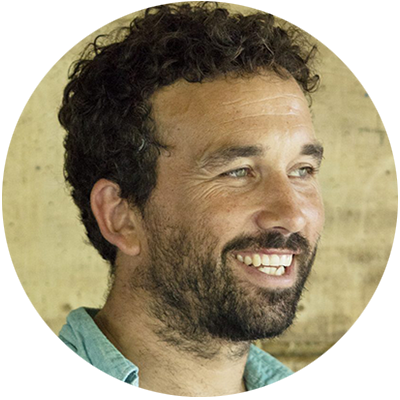
Paul Redman
Paul Redman is an award winning documentary filmmaker whose work has involved directing, filming and editing a variety of films on a range of issues including the trade in tiger parts, whale and dolphin trade, illegal logging and the ivory trade. His work has involved extensive travel in hazardous environments as a small crew using both open and covert filming techniques. His footage has been used in news features and for programming on BBC, Sky, CNN and a number of other major broadcasters. He has also trained activists media-based campaigning techniques in Indonesia, Papua, India and Tanzania as part of extensive UK Government funded training programs. His directing work with Handcrafted Films has produced a number of award-winning films for major development funders (UK DFID, European Forestry Institute, Ford Foundation, CLUA) and non-governmental organizations (Amnesty, WSPA, EIA, Eco Storm). He has been nominated three times for the Filmmakers for Conservation, ‘Filmmaker of the year award’ and is currently Project Director for ‘If Not Us Then Who?’ Paul is Secretary, Founder and non-voting member on the Board of If Not Us Then Who, Inc.
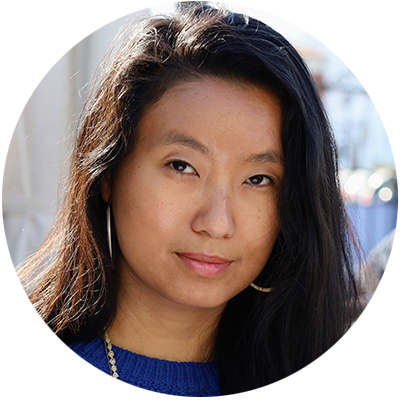
Thin Lei Win
Thin Lei Win is an award-winning Rome-based multimedia journalist specialising in food and climate issues for various international news media including through her own newsletter Thin Ink. Her extensive global experience includes nearly 13 years working as an international correspondent for the Thomson Reuters Foundation, the non-profit arm of the Thomson Reuters media company, covering topics ranging from climate change and resilience to food insecurity and refugees and displacement. She is also a sought-after speaker on Myanmar and moderator on food, agriculture and climate change. Born and raised in Myanmar, Thin has lived and worked in Singapore, Vietnam, Thailand, and most recently, Italy, and has reported from many parts of Asia, Africa and Europe. In 2015, Thin returned to Myanmar after many years abroad to set up, launch and manage Myanmar Now, an award-winning bilingual news agency, producing in-depth reports on the country’s historic elections. Thin also co-founded The Kite Tales, a unique preservation project that chronicles the lives and histories of ordinary people across Myanmar.
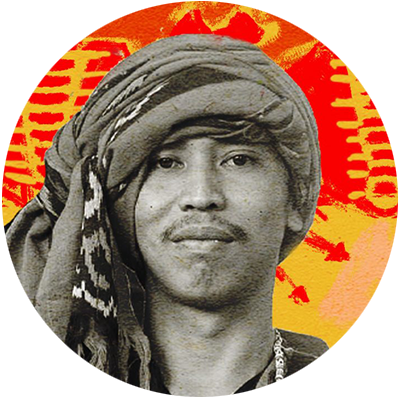
Kalfein Michael Wuisan
Kalfein Michael Wuisan or Kale, is an Indigenous Minahasa youth from Wuwuk, Sulawesi Utara, Indonesia. Besides involvement in the youth wing of the Indonesian Alliance of Indigenous Peoples (AMAN), called BPAN (Barisan Pemuda Adat Nusantara) he’s actively involved in short filmmaking and the cultural movement with local artists, humanists and historians to enhance Minahasa culture & their Christianity as part of Minahasa identity in Minahasa.
He uses photography & videography to teach Smartphone Cinematography to young generations from all villages in Minahasa and participates in the Minahasa youth film community to make their own film festival called FESTIVAL FELEM ORANG GUNUNG.
